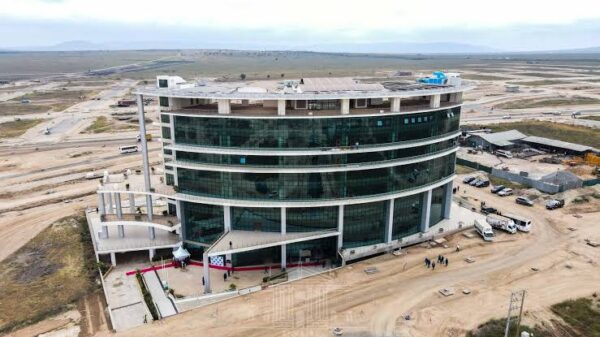NAIROBI, Kenya, May 5 – Debate on whether Kenya is experiencing the effects of the global economic crunch has picked up across many sectors of the country.
The topic has spurred reaction among employers and employees, government and various industry players, trickling down to the ordinary folk. Opinions amongst Kenyan businessmen on the issue are as varied as the debate itself. While some think that the government has acknowledged the crisis and taken steps to mitigate its effects, there are those who think the exact opposite.
Businessman Chris Kirubi is of the opinion that the government is ignorant of the challenges being posed by this crunch. Speaking at a recent forum on how small businesses can outsmart the global crisis, Mr Kirubi put Finance Secretary at Treasury, Mutua Kilaka, to task to explain what measures the government had put in place to address the effects.
Citing company closures, job losses, depleting markets for Kenyan goods and what he termed as a lack of concerted efforts by the government, the industrialist challenged Mr Kilaka to put the record straight.
The Finance Secretary listed a number of initiatives like reforms in public expenditure and financial management, regulatory reforms to improve private sector competitiveness as well as procurement reforms.
"However, I have to accept that we might not have been communicating very clearly on these initiatives, something we might have to improve on," Mr Kilaka conceded.
Private sector umbrella bodies like the Kenya Private Sector Alliance (KEPSA) the Kenya Association of Manufacturers (KAM) and individual entrepreneurs like Capital Realtime Managing Director Kiprono Kittony seem to agree that the government is trying its best to handle the issue.
"I believe in the bureaucratic capacity of the Kenyan government which has seen it forge ahead with its infrastructure and energy investments and introduce initiatives like Brand Kenya," Mr Kittony told Capital Business.
"In times of hardship like these, where governments have resorted to the introduction of protectionism to take care of their own, you cannot say that the government has gone wrong."
Mr Kittony however notes that the jury is still out there on whether such initiatives are enough. He also called for better communication from the government and increased interaction with the private sector.
On his part, new KEPSA Chairman Patrick Obath observed that disjointed efforts by the government and the private sector might hamper success in mitigating effects of the global economic crisis.
“We would like to see a cohesive national response,” he said. “We would like to see it done like it was done in the USA and a lot of other economies where they picked one or two big issues which were tackled by everybody.”
Kenya Association of Manufacturers (KAM) Chief Executive Officer, Betty Maina, expressed concern that some companies may be taking advantage of the global recession to downsize staff.
“Sometimes I’m not too sure whether everyone that is closing shop and laying off employees can truly blame the crunch or themselves for not running their businesses efficiently,” Ms Maina pointed out.
She challenged businesses to be more prudent in their financial reporting and sound corporate governance.
The KAM boss observed that the government had done well to sustain efforts in infrastructural development and investments in energy that should cushion the decline of international business in the country.
While admitting that Kenya may survive the recession, the Head of Planning at Young and Rubicam Brands Europe, Middle East and Africa, Simon Silvester, said it would be prudent for the government to come up with appropriate policies.
During a recent visit to Kenya, Mr Silvester advised companies to put more focus on aspects of their businesses that add more value to their products and cut out ‘the stuff’ that makes no sense to customers.
“For instance, if you are a mobile phone company stop focusing on the offers you are giving your customers and concentrate on your core business,” Mr Silvester advised.
He noted that Kenya’s young working population was a plus, as the country may not have to hike its taxes. “In some countries in Europe and America, there are huge numbers of pensioners which may force their governments to raise funds through taxation,” Mr Silvester explained.
He is recommending that businesses take advantage of opportunities that present themselves during a recession.
“A company like Google grew during the worst technology recession in 1999 and became a formidable force as a result of taking advantage of the opportunities that arose during the time,” he said.
Some of the technological innovations in computers and mobile phones could help companies improve efficiency, he advised.
“A study by the London School of Business has shown that taking advantage of mobile phones can grow an economy by 0.6 percent year on year,” Mr Silvester said.
A recent World Bank report indicated that Africa would be the worst hit by the global economic recession. Statistics from the Ministry of Labour show that nearly 8,000 jobs have been lost so far this year, and the worst is yet to come.
With such grim realities dawning on us, the government would be well advised to partner with all parties and formulate methods for data collection and analysis of the global recession’s real effects on Kenya. With accurate data, survival policies would be informed.


































